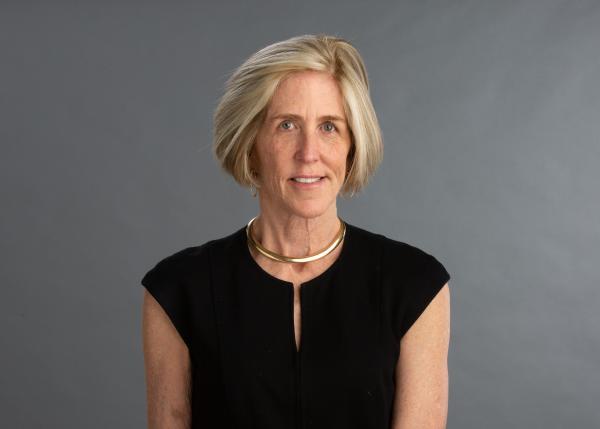
Helen H. Hobbs, the noted medical researcher and molecular geneticist, will deliver CCNY's 2023 Louis Levine-Gabriella de Beer Lecture.
Dr. Helen H. Hobbs, the award-winning University of Texas Southwestern (UTSW) medical researcher and molecular geneticist, presents the 2023 Louis Levine-Gabriella de Beer Lecture in Genetics at The City College of New York on Thursday, March 23. Her talk, “Nature, Nurture, and Disorders of Lipid Excess,” begins at 5 p.m. in The Great Hall. It is free and open to the public.
Her lecture will propose that insufficient time has elapsed for human genomes to adapt to the caloric abundance and reduced physical activity accompanying industrialization. “Diseases of dietary excess, rather than nutritional deficiency are the major causes of death and disability in the Western world. Using human genetics, we have identified new genes and sequence variations conferring resistance and susceptibility to metabolic disorders contributing to coronary artery disease and fatty liver disease. These studies have led to the development of new therapeutic strategies to prevent these increasingly common disorders,” reads a summary.
Hobbs is a recipient of The Breakthrough Prize in Life Sciences and the Harrington Prize for Innovation in Medicine. She’s a member of the National Academy of Medicine, the American Academy of Arts and Sciences, and the National Academy of Sciences.
After attending Stanford University and Case Western Reserve Medical School, she trained in internal medicine and endocrinology at Columbia University Presbyterian Medical Center and UTSW. She joined the UTSW
faculty in 1987 where she is now an Investigator of the Howard H. Hughes Medical Institute and a Professor of Internal Medicine and Molecular Genetics. Hobbs also serves as Director of the McDermott Center for Human Growth and Development.
Together with UTSW scientific partner Jonathan Cohen, she has used human genetics to identify sequence variations in genes with large effects on plasma levels of LDL-cholesterol and triglyceride. More recently, she discovered the two most impactful genetic risk factors for fatty liver disease. Gene identification is the starting point for studies that have elucidated pathways and processes altered by the defective genes Hobbs has identified.
The lecture is presented by CCNY President Vincent Boudreau and the Foundation for City College. Click here to reserve a seat, or call 212.650.6675. Emails can be sent to events@ccny.cuny.edu .
About the Louis Levine-Gabriella de beer Lecture in Genetics
The Louis Levine-Gabriella de Beer Lecture in Genetics was established by Gabriella de Beer in memory of her husband, Professor Louis Levine. A graduate of CCNY, he earned his PhD in population genetics under the late great evolutionary geneticist Theodosius Dobzhansky at Columbia University. Professor Levine’s research centered on population studies of Drosophila and behavior genetics of mice. Human genetics and forensic genetics were among other areas to which he was devoted. Professor Levine taught in the Department of Biology and in the Sophie Davis School of Biomedical Education, participated in bi-national research studies in Mexico, was Visiting Professor at the Technicon (the Israel Institute of Technology) in Israel, and in later years served as a consultant and expert witness in criminal cases involving DNA evidence. The aim of these annual lectures is to perpetuate Professor Louis Levine’s lifelong interest in the ever-expanding field of genetics.
About the City College of New York
Since 1847, The City College of New York has provided a high-quality and affordable education to generations of New Yorkers in a wide variety of disciplines. CCNY embraces its position at the forefront of social change. It is ranked #1 by the Harvard-based Opportunity Insights out of 369 selective public colleges in the United States on the overall mobility index. This measure reflects both access and outcomes, representing the likelihood that a student at CCNY can move up two or more income quintiles. Education research organization Degree Choices ranks CCNY #1 nationally among universities for economic return on investment. In addition, the Center for World University Rankings places CCNY in the top 1.8% of universities worldwide in terms of academic excellence. Labor analytics firm Emsi puts at $1.9 billion CCNY’s annual economic impact on the regional economy (5 boroughs and 5 adjacent counties) and quantifies the “for dollar” return on investment to students, taxpayers and society. At City College, more than 15,000 students pursue undergraduate and graduate degrees in eight schools and divisions, driven by significant funded research, creativity and scholarship. This year, CCNY launched its most expansive fundraising campaign, ever. The campaign, titled “Doing Remarkable Things Together” seeks to bring the College’s Foundation to more than $1 billion in total assets in support of the College mission. CCNY is as diverse, dynamic and visionary as New York City itself. View CCNY Media Kit.